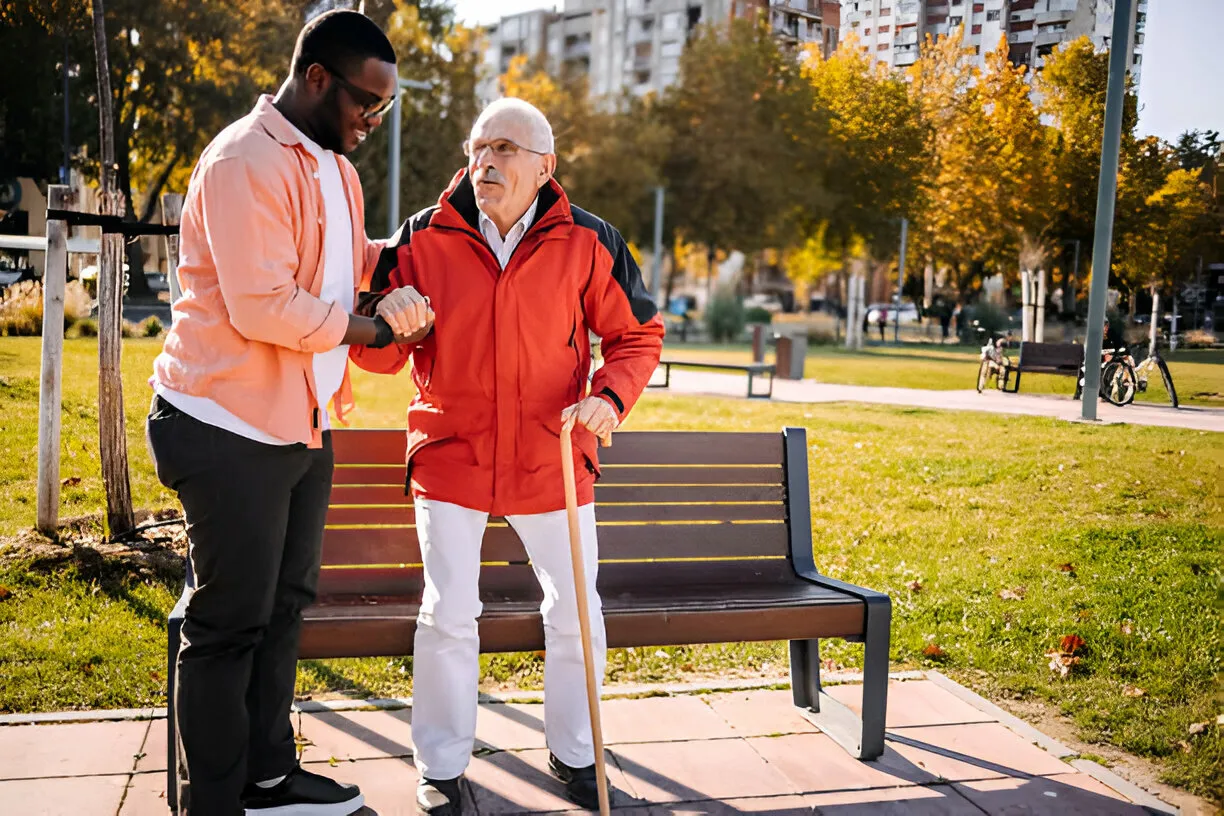
Creating an environment that promotes both physical and emotional well-being is a top priority in elderly care communities. While much attention is often given to indoor facilities and medical services, the immense benefits of outdoor spaces shouldn’t be overlooked. Well-designed gardens filled with lush greenery, winding walking paths that encourage exploration, and comfortable seating areas for residents to relax and unwind all contribute to a transformative atmosphere. These carefully planned outdoor areas not only beautify the surroundings but also greatly enhance the living experience for seniors, offering them a serene escape and the opportunity to engage with nature and each other.
Physical Health Benefits
Outdoor spaces motivate residents to engage in physical activity, whether it’s a brief stroll or some gentle gardening. These minor activities contribute to preserving joint flexibility, muscle power, and heart health. Availability of natural sunlight also aids in the synthesis of vitamin D, which is crucial for healthy bones and a robust immune system. For seniors with mobility challenges, outdoor environments must be thoughtfully designed. Smooth pathways, ramps, and resting spots allow them to safely enjoy fresh air without the risk of falls or overexertion. A short daily walk in a well-maintained garden can become a simple yet powerful health ritual.
Mental and Emotional Wellbeing
Nature has a calming effect on the human mind. Exposure to greenery and natural light reduces stress, anxiety, and depression. This is especially important in elderly care settings, where residents may face feelings of isolation or loss. A peaceful garden can serve as a sanctuary, offering a mental break from daily routines or worries.
Outdoor areas also stimulate the senses. The scent of flowers, the sound of birds, and the touch of sunlight on the skin all play a role in keeping the mind active and engaged. For residents living with dementia, sensory gardens can trigger positive memories and help maintain cognitive function.
Promoting Social Connection
Outdoor spaces naturally invite social interaction. Whether it’s two residents chatting on a bench, a small group tending to raised flower beds, or families visiting loved ones in the courtyard, these moments of connection matter. Social engagement helps prevent loneliness and fosters a sense of belonging.
Incorporating outdoor activities into the daily schedule—such as gardening clubs, music sessions, or afternoon tea in the sun—gives residents something to look forward to and keeps them mentally and emotionally stimulated.
A Real-World Example
This leading care home in Exeter in the UK offers a great example of how outdoor spaces can enhance elderly care. With beautifully landscaped gardens and safe, accessible paths, the setting encourages residents to spend time outside every day. This connection with nature isn’t just decorative, it’s central to the home’s approach to health and wellbeing.
More Than Just a Garden
An effective outdoor space in a care community isn’t just about aesthetics. It’s about creating a safe, welcoming, and accessible environment that residents want to use. Shaded seating, handrails, level pathways, and plenty of greenery all play a part in encouraging outdoor activity. As care standards evolve, integrating nature into elderly care isn’t just a trend—it’s an essential part of holistic health. For elderly residents, a little time outdoors can make a world of difference.
Also Read: Balancing Comfort, Care, and Community in Senior Living